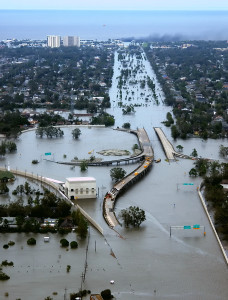Make sure you have a multi level security.
Multi level security.
Or the failings of the permanent security manager or bodyguard.
Let’s first draw a parallel with medical care with the latest example of the permanent MD failing Michael Jackson experienced, among others. The idea keeps bouncing back in spite of its glaring shortcomings. One has a medical condition and is wealthy enough to have a MD not only on call but on site, permanently. This avoids having to take appointments, provides a sense of luxury, and of course a sense of having the best possible medical attention.
Yet let’s look at how it goes in real life. The MD of course is chosen among the best specialist in the specific area that matters most for the individual hiring him as the permanent, in-house MD. He gets started, but as often is the case not much is happening in the first few weeks. Then the weeks become months and by the time the specialist is actually needed a couple years went by. In these couple years the specialist has unavoidably lost his sleight of hand if he is/was a surgeon and/or his edge in his specialty.
Imagine you need a very serious medical intervention: would you rather have the specialist who did the very same intervention two days ago and the week before and about twice a week for the last four years, or the guy who has done it two or more years ago and has not had any serious practice since? The choice is clear. Michael Jackson and others learned it the hard way.
The same parameters apply in the world of security. It is very wise to have a K & R insurance so that the insurance company will send a seasoned effective and efficient negotiator if or when you are kidnapped, but it does not make sense to hire full time a negotiator so that he will be ready if or when a kidnapping occurs in the family, losing touch with reality in the mean time.
Similarly the bodyguard freshly hired will look at everything with the “beginner’s eye” because everything is new and therefore needs to be thoroughly examined. But, after 2 months most aspects of the client’s life that were examined systematically with a keen eye, are now well known… 6 months later it takes a big effort to fight routine for the permanent security personnel. In the mean time temptations from the luxury surrounding the client abound, be it the young ladies, the cash, or simply the food and all the softness luxu ry brings. There are quite a few funny stories about these permanent security outfits, be it for real estate, yachts or other assets, yet while the client ends up blaming his permanent security staff, he should have known better. The second law of thermodynamics: “the entropy of any closed system only increases.” is hardly news. Worse yet, to go back to the parallel with the permanent MD: in case of a dramatic security incident, would you rather have the security detail that last week was plying its trade in a foreign land, and the week before that in yet another place, or the guys who did this three years ago before you hired them and since have only trained shooting paper targets, and worked out in your swimming pool?
ry brings. There are quite a few funny stories about these permanent security outfits, be it for real estate, yachts or other assets, yet while the client ends up blaming his permanent security staff, he should have known better. The second law of thermodynamics: “the entropy of any closed system only increases.” is hardly news. Worse yet, to go back to the parallel with the permanent MD: in case of a dramatic security incident, would you rather have the security detail that last week was plying its trade in a foreign land, and the week before that in yet another place, or the guys who did this three years ago before you hired them and since have only trained shooting paper targets, and worked out in your swimming pool?
Years ago the owner of an international bank needed such a permanent bodyguard; this is how we got in touch, tough not directly. After I explained that the concept was flawed. We lost the business as the prospective client was determined to have a permanent bodyguard. He actually found a true pearl; as he also had a medical condition he found a bodyguard who was also a male nurse… who ended up burning him alive a couple years later in an arson case that brought worldwide attention.
 Permanent security is like a sea wall; it can handle some issues but is systematically over taken by large scale events. Do not miss the writing on the sea wall like N.O. did!
Permanent security is like a sea wall; it can handle some issues but is systematically over taken by large scale events. Do not miss the writing on the sea wall like N.O. did!
Now to every problem there are several solutions and the question of the permanent bodyguard or security manager is no different. One can have such a security manager, as long as one also has an operational security outfit that would occasionally audit the said manager or bodyguard, and that would come to help support the permanent asset when a crisis occurs. Very much like one has a family doctor who is backed by hospital doctors when a major crisis occurs. The difference between the medical field and security is that most professional MDs would be the first to recommend a trip to the hospital when they think it could be a good option knowing that it is better to go for a false alarm than miss a real issue. The ego of many security managers though is that they feel jeopardized when outside help is requested, thus delaying often until the situation has gone into FUBAR mode.
Yet with the two elements or echelons of security in place from the beginning, one can deal with a familiar individual on a daily basis knowing that reinforcements, already familiar with the situation particulars are but a phone call away in case of a crisis beyond the means of the permanent element. If you are the head of the house and by definition, albeit probably on a tight budget, the resident security manager for the family, make sure you regularly get professional advice and training, and make sure you have a plan that includes a second echelon of security. No one is perfect, no one is invincible, and no one knows everything; do not wait until your security manager admits there were things he did not know he did not know. Instead make sure there is a counter weight to his decisions because the consequences are yours not his. This country’s constitution is about checks and balances; a brilliant idea wrapped in a brilliant constitution!


One Comment
Pingbacks